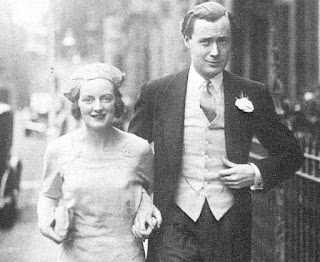Eighty years ago, two forgotten rearmers step up, anti-appeasement shows its family firm weaknesses and the democracies play arms control make-believe
With little fanfare the Air
Ministry made two key appointments that were to shape the performance of the
aircraft manufacturing industry into the Second World War. Air Marshal Sir Wilfrid
Freeman was given the production remit in addition to his existing job as the
air member for research and development. He was to be assisted by Ernest Lemon
as Director-General of Production. Lemon came from railway company L.M.S. where
he had modernized the depot, repair and engineering infrastructure. He did not
know the aircraft industry but he understood how to organize industrial units. Now
almost unknown, Freeman and Lemon were responsible for the transformation of
the British aircraft industry into a powerful and efficient entity, capable of
far more rational efforts than the German air industry at that stage. Sadly the
appointment of Lord Beaverbrook as Minister of Aircraft Production in 1940
began the legend that the industry had been in dire need of reform up till then
and that Beaverbrook had transformed it single-handed thus winning the Battle
of Britain. In reality Beaverbrook’s crude, headline figures driven methods
almost destroyed the patient, structured work of Freeman and Lemon.
Duncan Sandys had married Winston
Churchill’s daughter and been elected as an MP in 1935; he was an officer in a
Territorial Army anti-aircraft unit. He gave notice of a detailed Parliamentary
question on anti-aircraft defences and found himself threatened with prosecution
for revealing military secrets. Presented with a perfect opportunity to hammer
home the government’s desire to hide the inadequacy of anti-aircraft defences behind
excessive secrecy, Sandys with Churchill’s support over-played his hand by bringing
the matter before the Committee of Privileges as an infringement on the constitutional
rights of an MP. An easy presentational win was transformed into a procedural
slogging contest, incomprehensible to the public and which played to the
government’s built-in strengths. The episode was emblematic of the weaknesses
in Churchill’s campaign against appeasement. But for his father-in-law Sandys would
barely have counted as an MP. He was a considerably more impressive figure than Randolph Churchill, the other family member of Winston's parliamentary group, but that is not saying very much. Sandys's marriage was not a success either.
In a sad, faint echo of
international control of naval armaments Britain, France and the USA agreed to
lift the permissible tonnage for battleships to 45,000 tons from 35,000 tons. Gun
sizes were to held at 16 inches. The hope was expressed that the Soviet Union would
accept these limits, tantamount to a public declaration that neither Germany not
Japan was going to pay the slightest attention having withdrawn from the old
system. To add a further layer of irrelevance, the USA was preparing to fit 18
inch guns in contravention of the new agreement to counter a Japanese move in
this direction.



Comments
Post a Comment